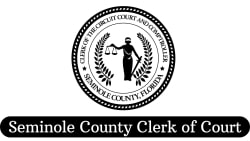The probate judge is an elected Seminole County Clerk of Court who serves a four-year term. In all counties with a population of less than 96,000, the probate judge is not required to be a lawyer. The probate judge, along with the superior court’s sheriff and clerk, appoints the county’s official legal entity (the newspaper in which legal notices are published). The probate judge hears all cases involving traffic, hunting, and fishing violations.
The probate judge, along with the superior court’s sheriff and clerk, appoints the county’s official legal entity (the newspaper in which legal notices are published). The probate judge hears all cases involving traffic, hunting, and fishing violations.
Probate and Administration of Estates
Probate courts manage the proper distribution of the assets of a deceased person (a decedent), evaluate the validity of wills, enforce the terms of a valid will (through the grant of probate), prevent the misappropriation of funds by executors and estate administrators, and ensure the equitable distribution of the property of people who die intestate (without a valid will), for example, by granting court permission to the personal representative to manage the affairs of the person’s estate.
Probate Courts in Georgia
Each probate judge is also a member of the Georgia Probate Court Board of Judges, founded in 1988 to promote improvements in probate courts and the administration of justice.
All probate judges must complete at least 12 hours of continuing legal education each calendar year during their term of office.
Additional Cases
The probate court may also hear cases involving the removal of road obstructions. It is the legal process of managing a deceased person’s assets, settling all claims, distributing their holdings by a valid will, and administering the estate.
A probate court is a specialized court that handles inheritance matters.
Contested Wills
If a will is in dispute, the probate court steps in to verify its validity.
Once settled, the court decides who should receive the deceased person’s assets.
But if there’s no will at all—intestate succession—the court follows local laws to determine who inherits what.
The probate court then oversees the distribution of the deceased’s assets to the appropriate beneficiaries. In some jurisdictions, these courts are called orphan or ordinary courts.